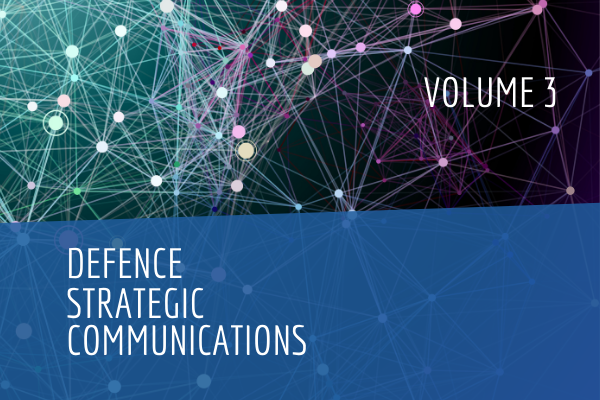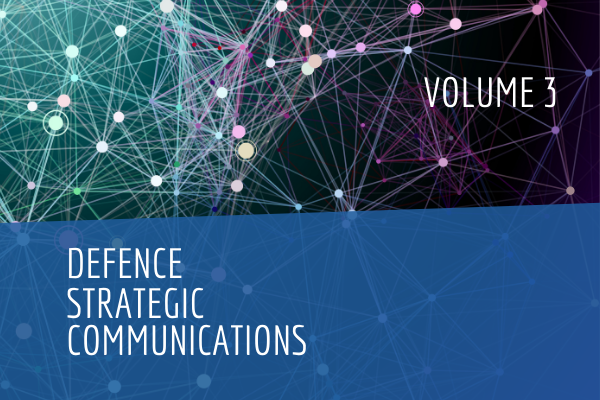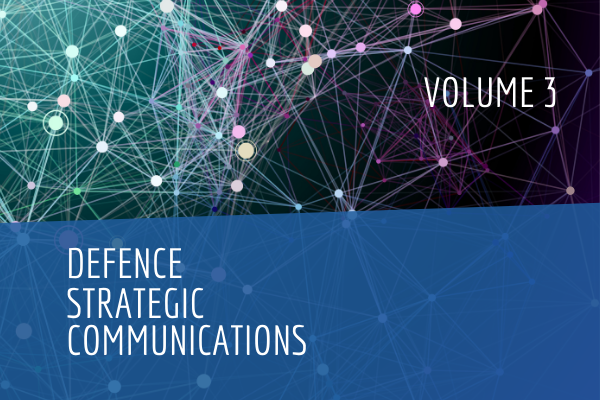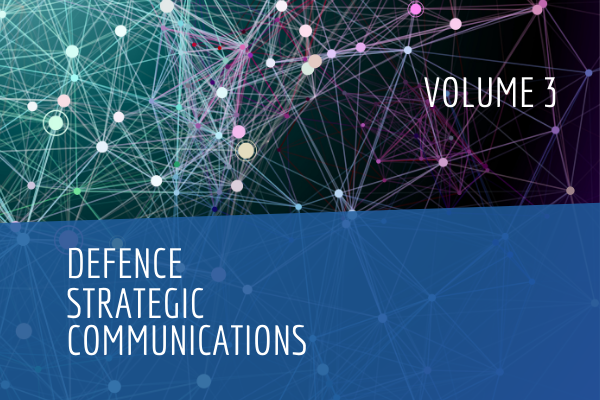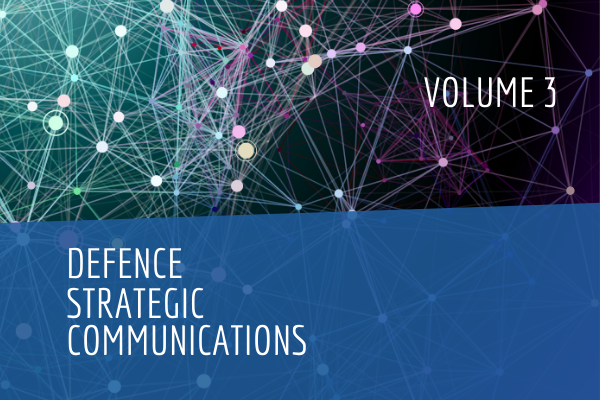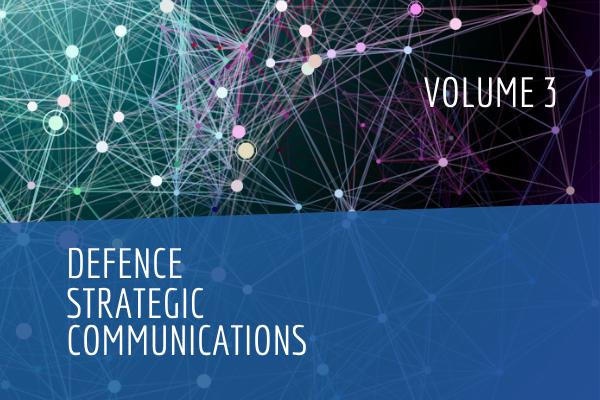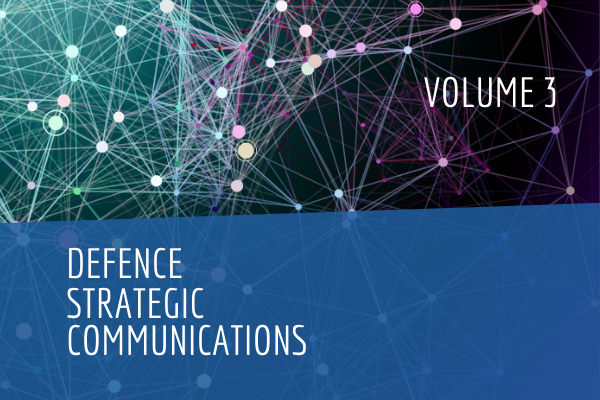Abstract
How did North African states depict their nomadic minorities to the US during the War on Terror in the 2000s? How did this shape American policy in the region? Focusing on Malian-American diplomacy and drawing on post-structuralist analytics of identity-formation, this paper first examines how Malian diplomacy represented nomadic minorities in communication with US diplomatic and military envoys during the period 2002–2010. It is found that Mali consistently branded Saharan nomads as lawless subjects that make territory ungovernable, compromise security, and facilitate terrorism. Second, this paper deploys intertextual analysis to measure the success of these strategic communications efforts. It is found that, despite the advice of some American diplomats on the ground, by the end of 2008 Mali’s depiction of Saharan nomadism had been absorbed into US diplomacy. This subsumed Northern Malian subjects into the categories of the War on Terror, which privileged military control of subjects and territory over development and reconciliation efforts. This policy shift granted Mali influence over US policy and diplomatic support to ignore nomadic grievances. Analysis reveals the key role of identity-making and name-calling in Mali-US relations and in diplomatic communication more broadly, showcasing the potential of textual analysis methods to evaluate strategic communications outcomes.
Keywords: counterterrorism, identity, North Africa, diplomacy, Tuareg, Mali, strategic communication, strategic communications
About the Author
Pablo de Orellana is a Fellow at the Department of War Studies, King’s College London. His research focuses on identity politics, the role of identity in diplomacy, diplomatic practices, nationalism, International Relations theory, as well as art history and theory.
Bibliography
Adler, Emanuel, and Vincent Pouliot, eds. International Practices. Cambridge, UK: Cambridge University Press, 2011.
Adler-Nissen, Rebecca. ‘Stigma Management in International Relations: Transgressive Identities, Norms, and Order in International Society’. International Organization 68, № 01 (January 2014), 143–176.
———. and Vincent Pouliot. ‘Power in Practice: Negotiating the International Intervention in Libya’. European Journal of International Relations 20, № 4 (1 December 2014), 889–911.
‘American Odyssey’, 2015. Summarised by Wikipedia as follows: ‘American Odyssey (known in the UK under its original title Odyssey) is an American thriller television series which premiered on April 5, 2015, on NBC [...T]he series revolves around the discovery by a U.S. Army team on a secret mission in Mali, that a major U.S. company has been funding Islamist terror groups, and the subsequent cover-up of this revelation, which involves the attack and killing of the team of U.S. soldiers by private military contractors dispatched by the same company.’ NBC cancelled the show after one season.
Ashley, Richard K.. ‘Living on Border Lines: Man, Poststructuralism, and War’. In International/Intertextual Relations: Postmodern Readings of World Politics. edited by James Der Derian and Michael J. Shapiro, 259–321. Lexington, Massachusetts.: Lexington Books, 1989.
Bakhtin, M[ikhail] M[ikhailovich]. Dialogic Imagination: Four Essays. Edited by Michael Holquist, translated by Caryl Emerson. Austin: University of Texas Press, 1982.
Barthes, Roland. ‘S/Z’, New York: Hill and Wang, 1974.
———. Image Music Text. New edition. London: Fontana Press, 1993.
———. Leçon Inaugurale de la chaire de semiologie litteraire du College de France. Paris: Éditions du Seuil, 1978.
Bøås, Morten, and Liv Elin Torheim. ‘The Trouble in Mali—Corruption, Collusion, Resistance’. Third World Quarterly 34, № 7 (1 August 2013), 1279–1292.
Boudali, Lianne Kennedy. The Trans-Sahara Counterterrorism Partnership. West Point, N.Y. : Combating Terrorism Center, United States Military Academy, 2007.
Bourgeot, André. ‘Identité Touarègue: De l’aristocratie à la révolution’. Études Rurales № 120 (1990), 129–162.
———. ‘Le Corps Touareg Désarticulé ou l’impensé politique [The Disjointed Tuareg Body, or Political Unimagination]’. Cahiers d’Études Africaines 34, № 136 (1994), 659– 671.
———. ‘Les Rébellions Touarègues: une cause perdue?’ Afrique Contemporaine № 180 (1996), 99–115.
———. ‘Révoltes et Rébellions en pays touareg’. Afrique Contemporaine № 170 (1994), 3–19.
Bradley, Mark Philip. Imagining Vietnam and America: The Making of Postcolonial Vietnam, 1919–1950. Chapel Hill: University of North Carolina Press, 2000.
Bray, F. J. The Trans-Sahara Counterterrorism Partnership: Strategy and Institutional Friction, 22 March 2011.
Callières, François de. De la manière de négocier avec les souverains. Paris: Michel Brunet, 1716.
Campbell, David. Writing Security: United States Foreign Policy and the Politics of Identity. 2nd revised edition. Manchester: Manchester University Press, 1998.
Castells, Manuel. Communication Power. Oxford: Oxford University Press, 2013.
Claudot-Hawad, Hélène. ‘A Nomadic Fight against Immobility : The Tuareg in the Modern State’. In Nomadic Societies in The Middle East and North Africa: Entering the 21st Century, edited by D. Chatty, 654–681. Leiden: Brill, 2006.
———. ‘Identité et altérité d’un point de vue touareg’. In Touaregs et autres Sahariens entre plusieurs mondes. Définitions et redéfinitions de soi et des autres, edited by Hélène Claudot- Hawad, 7–16. Aix-en-Provence: Edisud, 1996.
———. ‘La Hiérarchie des savoirs et des pouvoirs dans la société touarègue précoloniale et la recomposition des rôles socio-politiques pendant la guerre anticoloniale et après la défaite’. Nomadic Peoples 2, №№ 1/2 (1998), 17–38.
———. Les Touaregs. Portrait En Fragments. Aix-en-Provence: Édisud, 1993.
———, ed. Touaregs. Exil et résistance. Special issue of the Revue du monde musulman et da la Méditeranée, № 57. Aix-en-Provence: Édisud, 1991.
Cline, Lawrence. ‘Counterterrorism Strategy in the Sahel’. Studies in Conflict & Terrorism 30, № 10 (18 September 2007), 889–899.
Cline, Lawrence E. ‘Nomads, Islamists, and Soldiers: The Struggles for Northern Mali’. Studies in Conflict & Terrorism 36, № 8 (1 August 2013), 617–634.
Connolly, William E. ‘Identity and Difference in Global Politics’. In International/ Intertextual Relations: Postmodern Readings of World Politics, edited by James Der Derian and Michael J. Shapiro, 323–342. Lexington, Massachusetts.: Lexington Books, 1989.
———. Identity\Difference: Democratic Negotiations of Political Paradox, (Minneapolis: University of Minnesota Press, 2002).
Constantinou, Costas M. On the Way to Diplomacy. Minneapolis: University of Minnesota Press, 1996.
Constantinou, Costas M., Oliver P. Richmond, and Alison Watson. Cultures and Politics of Global Communication. Special issue (Volume 34) of Review of International Studies. Cambridge: Cambridge University Press, 2008 .
Department Of State, Bureau of Public Affairs. ‘Remarks at Signing Ceremony for Millennium Challenge Corporation’s Compact with the Republic of Mali—Secretary Condoleezza Rice and Ambassador Danilovich’: https://2001-2009.state.gov/ secretary/rm/2006/75871.htm (accessed 24 October 2017).
Department Of State, The Office of Electronic Information, Bureau of Public Affairs. ‘Remarks at the Community of Democracies UNGA Event—Secretary Condoleezza Rice’, 1 October 2007: https://2001-2009.state.gov/secretary/ rm/2007/10/93344.htm
Der Derian, James. Antidiplomacy: Spies, Terror, Speed, and War.Cambridge, MA: Blackwell, 1992.
———, ed. International/Intertextual Relations: Postmodern Readings of World Politics. Lexington, Massachusetts: Lexington Books, 1989.
———. On Diplomacy: A Genealogy of Western Estrangement.Oxford: Oxford University Press, 1987.
Epstein, Charlotte. ‘Who Speaks? Discourse, the Subject and the Study of Identity in International Politics’. European Journal of International Relations 17, № 2 (2011), 327–350.
Fan, Ying. ‘Branding the Nation: Towards a Better Understanding’. Place Branding and Public Diplomacy 6, № 2 (May 2010), 97–103.
Farwell, James P., Persuasion and Power: The Art of Strategic Communication. Washington, DC: Georgetown University Press, 2012.
Fisher, Jonathan. ‘Managing Donor Perceptions: Contextualizing Uganda’s 2007 Intervention in Somalia’. African Affairs 111, № 444 (1 July 2012), 404–423.
———. ‘ “Some More Reliable than Others”: Image Management, Donor Perceptions and the Global War on Terror in East African Diplomacy’. The Journal of Modern African Studies 51, № 01 (2013), 1–31.
———. ‘Structure, Agency and Africa in the International System: Donor Diplomacy and Regional Security Policy in East Africa since the 1990s’. Conflict, Security & Development 13, № 5 (1 December 2013), 537–567.
Fitzgerald, Michael, and Richard Ned Lebow. ‘Iraq: The Mother of All Intelligence Failures’. Intelligence and National Security 21, № 5 (1 October 2006), 884–909.
Foucault, Michel. Power/Knowledge: Selected Interviews and Other Writings, 1972–1977. Edited by Colin Gordon; translated by Colin Gordon, Leo Marshall, John Mepham, and Kate Soper. New York : Pantheon Books, 1980.
———. Archaeology of Knowledge. Translated by A.M. Sheridan Smith. London: Routledge, 2002.
———. ‘Nietzsche, Genealogy, History’. In Nietzsche, edited by John Richardson and Brian Leiter, 139–164. Oxford: Oxford University Press, 2001.
———. The Order of Things: An Archaeology of the Human Sciences. Second edition. London: Routledge, 2002.
Goff, Patricia, and Kevin Dunn. Identity and Global Politics: Theoretical and Empirical Elaborations. New York: Palgrave Macmillan, 2004.
Guichaoua, Yvan. ‘Circumstantial Alliances and Loose Loyalties in Rebellion Making: The Case of Tuareg Insurgency in Northern Niger (2007–2009)’. In Understanding Collective Political Violence, edited by Yvan Guichaoua, 246–266. Houndmills, Basingstoke, Hampshire: Palgrave Macmillan, 2012.
Gutelius, David. ‘Islam in Northern Mali and the War on Terror’. Journal of Contemporary African Studies 25, № 1 (2007), 59–76.
Harmon, Stephen A. Terror and Insurgency in the Sahara-Sahel Region: Corruption, Contraband, Jihad and the Mali War of 2012–2013. London: Routledge, 2016.
Jorio, Rosa De. ‘Narratives of the Nation and Democracy in Mali’. Cahiers d’études Africaines № 172 (1 September 2008), 827–856.
Lecocq, Baz. Disputed Desert : Decolonisation, Competing Nationalisms and Tuareg Rebellions in Northern Mali. Leiden: Brill, 2010.
Lecocq, Baz, Gregory Mann, Bruce Whitehouse, Dida Badi, Lotte Pelckmans, Nadia Belalimat, Bruce Hall, and Wolfram Lacher. ‘One Hippopotamus and Eight Blind
Analysts: A Multivocal Analysis of the 2012 Political Crisis in the Divided Republic of Mali’. Review of African Political Economy 40, № 137 (1 September 2013), 343–357.
Lusane, Clarence. Colin Powell and Condoleezza Rice: Foreign Policy, Race, and the New American Century.Santa Barbara, California: Greenwood Publishing Group, 2006.
Machiavelli, Niccolò. Tutte le opere storiche, politiche e letterarie. Edited by A. Capata. Rome: Newton Compton, 2011.
McFate, Sean. ‘U.S. AFRICA COMMAND: A New Strategic Paradigm?’ Military Review; Fort Leavenworth 88, № 1 (February 2008), 10–21.
Miskimmon, Alister, Ben O’Loughlin, and Laura Roselle. Forging the World: Strategic Narratives and International Relations. University of Michigan Press, 2012.
———. Strategic Narratives: Communication Power and the New World Order. London: Routledge, 2014.
Mundy, Jacob. ‘Neutrality or Complicity? The United States and the 1975 Moroccan Takeover of the Spanish Sahara’. The Journal of North African Studies 11, № 3 (2006), 275–306.
Neumann, Iver B. ‘Returning Practice to the Linguistic Turn: The Case of Diplomacy’. Millennium: Journal of International Studies 31, № 3 (2002), 627.
———. At Home with the Diplomats: Inside a European Foreign Ministry. Ithaca, NY: Cornell University Press, 2012.
———. Diplomatic Sites: A Critical Enquiry. London: Hurst Publishers, 2013.
———. Russia and the Idea of Europe: A Study in Identity and International Relations. London: Routledge, 1996.
———. ‘Self and Other in International Relations’. European Journal of International Relations 2, № 2 (1996), 139–174.
———. ‘The English School on Diplomacy: Scholarly Promise Unfulfilled’. International Relations 17, № 3 (1 September 2003), 341–369.
———. Uses of the Other: “The East” in European Identity Formation. Manchester: Manchester University Press, 1999.
Nietzsche, Friedrich Wilhelm. ‘Genealogy of Morals’. In Basic Writings of Nietzsche, translated and edited by Walter Kaufmann, with an introduction by Peter Gay and commentary by Martin Heidegger, Albert Camus, and Gilles Deleuze, 437–600. New York: Modern Library, 2000.
de Orellana, Pablo. ‘Struggles over Identity in Diplomacy: “Commie Terrorists” Contra “Imperialists” in Western Sahara’. International Relations 29, № 4 (1 December 2015), 477–499.
———. ‘When Diplomacy Identifies Terrorists: Subjects, Identity and Agency in the War On Terror in Mali’. In The Palgrave Handbook of Global Counterterrorism Policy, edited by Scott Romaniuk, Francis Grice, and Stewart Webb, (London: Palgrave Macmillan, 2016).
Pezard, Stephanie, and Michael Shurkin. Achieving Peace in Northern Mali: Past Agreements, Local Conflicts, and the Prospects for a Durable Settlement. Santa Monica, California: RAND Corporation, 2015.
Pouliot, Vincent. International Pecking Orders: The Politics and Practice of Multilateral Diplomacy. Cambridge: Cambridge University Press, 2016.
Pringle, Robert. ‘Mali’s Unlikely Democracy’. The Wilson Quarterly 30, № 2 (2006), 31–39.
Ronen, Yehudit. ‘Libya, the Tuareg and Mali on the Eve of the “Arab Spring” and in Its Aftermath: An Anatomy of Changed Relations’. The Journal of North African Studies 18, № 4 (1 September 2013), 544–559.
Said, Edward W. Orientalism. London: Penguin Books, 2003.
Sandor, Adam. ‘Assemblages of Intervention: Politics, Security, and Drug Trafficking in West Africa’. Thesis, Université d’Ottawa/University of Ottawa, 2016: http://www. ruor.uottawa.ca/handle/10393/34259
Shapiro, M. J. The Politics of Representation: Writing Practices in Biography, Photography, and Policy Analysis. Madison: University of Wisconsin Press, 1988.
Solomon, Hussein. ‘The African State and the Failure of US Counter-Terrorism Initiatives in Africa: The Cases of Nigeria and Mali. South African Journal of International Affairs 20, № 3 (1 December 2013), 427–445.
‘Statement from Senator Coons on Situation in Mali’, 22 March 2012; http://www. coons.senate.gov/newsroom/releases/release/statement-from-senator-coons-on-situation-in-mali
Szondi, Gyorgy. ‘From Image Management to Relationship Building: A Public Relations Approach to Nation Branding’. Place Branding and Public Diplomacy 6, № 4 (November 2010), 333–343.
———. Public Diplomacy and Nation Branding: Conceptual Similarities and Differences. The Hague: Netherlands Institute of International Relations ‘Clingendael’, 2008.
Vatin, Jean-Claude. ‘Désert Construit et inventé, Sahara perdu ou retrouvé: le jeu des imaginaires’. Revue de l’Occident musulman et de la Méditerranée 37, № 1 (1984), 107–131.
Walther, Olivier J., and Dimitris Christopoulos. ‘Islamic Terrorism and the Malian Rebellion. Terrorism and Political Violence 27, № 3 (27 May 2015), 497–519.
Wang, Jian. ‘Managing National Reputation and International Relations in the Global Era: Public Diplomacy Revisited’. Public Relations Review 32, № 2 (June 2006), 91–96.
Whitehouse, Bruce. ‘ “A Festival of Brigands”: In Search of Democracy and Political Legitimacy in Mali’. Strategic Review for Southern Africa; Pretoria 35, № 2 (November 2013), 35–52.
Williams, Michael C. ‘Identity and the Politics of Security’. European Journal of International Relations 4, № 2 (1 June 1998), 204–225.
Williams, Michael C., and Iver B. Neumann. ‘From Alliance to Security Community: NATO, Russia, and the Power of Identity’. Millennium—Journal of International Studies 29, № 2 (1 June 2000), 357–387.
Wing, Susanna D. ‘Mali: Politics of a Crisis’. African Affairs 112, № 448 (1 July 2013), 476–485.
Zoubir, Yahia H. ‘The Sahara-Sahel Quagmire: Regional and International Ramifications’. Mediterranean Politics 17, № 3 (1 November 2012), 452–458.
———. ‘The United States and Maghreb–Sahel Security’, International Affairs 85, № 5 (1 September 2009), 977–995.
Zounmenou, David. ‘Rethinking the Tuareg Factor in the Mali Crisis’. Conflict Trends 2013, № 3 (1 January 2013), 16–23.
